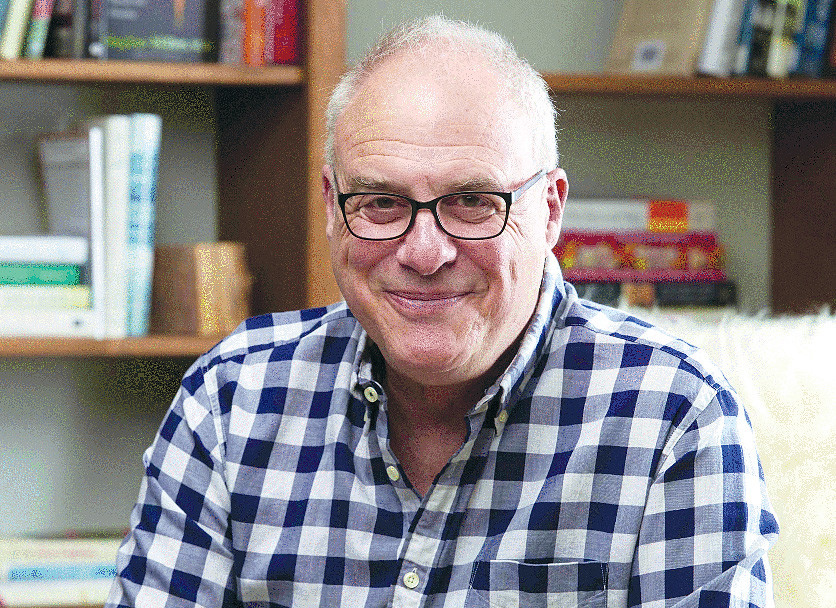Like ultra-processed food, Mark Bittman’s Animal, Vegetable, Junk should come with a warning label. It might say: “Do not consume without antidepressants on hand.” That’s because Bittman, the author of dozens of books on food and cooking but best known for his “The Minimalist” columns for the New York Times, doesn’t mince words when it comes to the horrific, unsustainable state of the US food system.
Bittman, who since 2016 has served as a lecturer and special adviser for food policy at the Mailman School of Public Health, defines junk as “engineered edible substances, barely recognizable as products of the earth.” It has “hijacked our diets and created a public health crisis that diminishes the lives of perhaps half of all humans,” he writes. But junk isn’t only a problem of diet. “The industrialized agriculture that has spawned junk … has done more damage to the earth than strip mining, urbanization, even fossil fuel extraction.”
For those who have never studied sustainability, Bittman creates a kind of Industrial Food 101 survey course that spells out how technological advances in agriculture have led us to what’s called “extractive” farming. This evolution began as far back as the fourteenth century, when Europeans learned how to turn cane into sugar — a process that required tremendous swaths of cleared land, shocking amounts of human labor, and tons of water. The innovation worked so well that sugar became a coveted commodity around the world.
But the shift began in earnest in the late 1800s, when ever-increasing supplies of both grain and animals in the US prompted the expansion of railroads, giving farmers a way to transport these foods across the US and sell them to global markets. By the end of the nineteenth century, Midwest-based multinationals like Cargill, Pillsbury, and General Mills were thriving, and food had become a lucrative business.
Big Agriculture has had a devastating impact on our health and waistlines. Bittman details how the quest for efficiency drove family farms to merge, plant fewer crops, and offer fewer foods for our tables. Most pernicious, says Bittman, was the way the US government, steered by corporate greed, propped up falling prices by encouraging ever-increasing consumption of foods of ever-declining nutritive value. “The solution would come through selling Americans on chronic overeating of foods that would make them sick,” says Bittman. In 1916 a glut of milk inspired James L. Kraft to patent American processed cheese — a “low-grade, cheese-like paste” — and around the same time, an excess of beef birthed the American hamburger. A surplus of corn gave us the truly ubiquitous high-fructose corn syrup, a sweetener that boosts calorie density while offering no nutritional payoff.
Bittman also catalogs the ways food has been used to subjugate workers — from enslaved people in sugarcane fields to today’s migrant berry pickers — to win wars, and even to oppress women. He describes how industrial food production contributes to greenhouse-gas emissions that are warming our planet.
For Bittman, food is political. The Green Revolution of 1940–60, in which the US government supersized production in a nominally altruistic effort to “feed the world,” was merely “a front for selling American agricultural machinery, chemicals, and seeds,” he argues. Because the food industry concealed the truth about how addictive sugar is, Bittman believes that in the future, sugar will be thought of as “the tobacco of the twenty-first century.”
Bittman is enthusiastic about agroecology, a set of practices that integrates ecological principles into farming, but he concedes that a global focus on “growing in harmony with nature” is an ambitious goal. “Whether it’s enough remains to be seen, but agroecology is hands-down our best bet for changing agriculture’s role from a driver of the greatest problems afflicting humankind to a solution.” And while organic practices are expanding, Bittman asserts that real change requires a more definitive act of political and cultural will. “The mistakes of the past cannot be changed, but they can be remedied,” he says. “This requires a shift in power.”
Animal, Vegetable, Junk arrives with perfect timing at a moment in the American consciousness when the importance of public health, social justice, and climate change have been heightened for so many. Bittman does a yeoman’s job of explaining how we got here and why we should be worried. Perhaps for that reason Bittman’s cri de coeur will actually be heard beyond the confines of the usual choir of the progressive food movement. Yes, revolutionizing our food system is a tall order, Bittman acknowledges, but “the alternative is catastrophic.”




